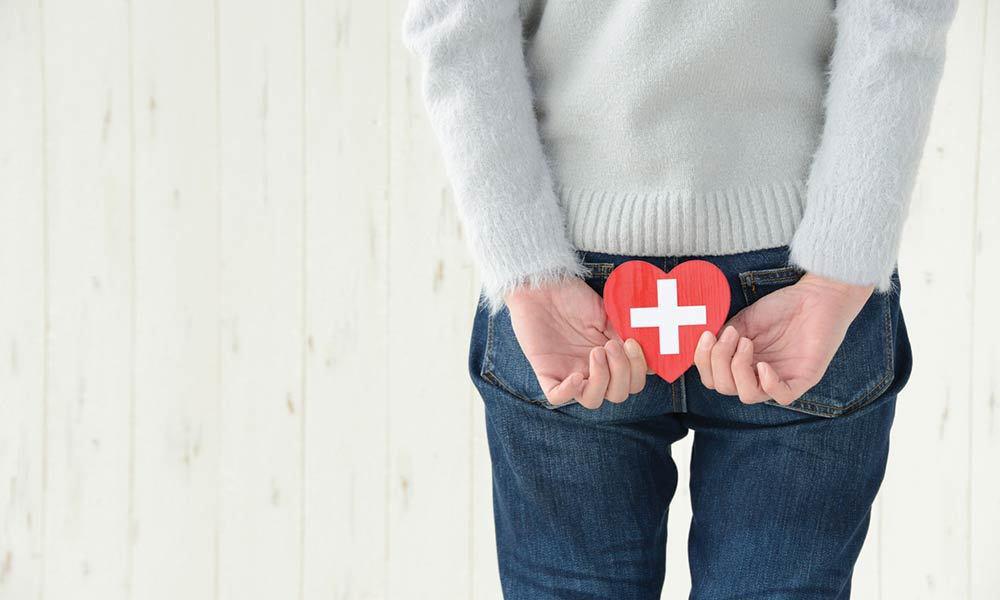
Understanding Hemorrhoids
Hemorrhoids are swollen veins in the lower rectum or anus, similar to varicose veins. They can develop internally, inside the rectum (internal hemorrhoids), or externally, under the skin around the anus (external hemorrhoids). Hemorrhoids are a common condition, especially in adults over 50, but they can affect people of all ages. While they can be uncomfortable and sometimes painful, hemorrhoids are generally not dangerous and can be treated effectively.
Common Symptoms of Hemorrhoids
Pain and Discomfort
Pain and discomfort are the most noticeable symptoms of hemorrhoids, particularly with external hemorrhoids. This discomfort can range from mild irritation to significant pain, especially during bowel movements. Sitting for long periods can also exacerbate the pain associated with hemorrhoids.
Itching and Irritation
Itching around the anus is a common symptom of hemorrhoids. This itching occurs because the swollen veins can cause irritation in the skin around the anus. Scratching can worsen the irritation, leading to further discomfort and potentially causing bleeding.
Bleeding
One of the most common signs of hemorrhoids is bleeding during bowel movements. This usually appears as bright red blood on toilet paper or in the toilet bowl. While bleeding is typically mild, any persistent or heavy bleeding should be evaluated by a healthcare provider to rule out more serious conditions.
Swelling and Lumps
External hemorrhoids can cause noticeable swelling around the anus. In some cases, a hard lump may form due to a blood clot within the hemorrhoid, known as a thrombosed hemorrhoid. This lump can be very painful and may require medical treatment if it does not resolve on its own.
Prolapse
Internal hemorrhoids can sometimes protrude outside the anus, a condition known as prolapse. Prolapsed hemorrhoids can cause discomfort, bleeding, and difficulty with hygiene. They can often be pushed back inside, but in some cases, medical treatment may be necessary.
Treatment Options for Hemorrhoids
Over-the-Counter Remedies
For mild to moderate hemorrhoids, over-the-counter treatments can provide relief. These treatments include creams, ointments, and suppositories designed to reduce pain, itching, and swelling. Common ingredients include hydrocortisone, which helps reduce inflammation, and witch hazel, which soothes irritated skin.
Home Remedies
Several home remedies can help manage the symptoms of hemorrhoids. Soaking in a warm bath for 10 to 15 minutes, known as a sitz bath, can help reduce swelling and relieve pain. Keeping the area clean and dry is also important to prevent irritation. Applying cold compresses can reduce swelling and provide temporary relief from pain.
Dietary Changes
Increasing fiber intake can help prevent and treat hemorrhoids by softening stools and reducing the need to strain during bowel movements. Foods high in fiber include fruits, vegetables, whole grains, and legumes. Staying hydrated by drinking plenty of water also helps keep stools soft and easier to pass.
Medical Procedures
For more severe hemorrhoids that do not respond to home treatments, medical procedures may be necessary. These include:
- Rubber Band Ligation: A small band is placed around the base of the hemorrhoid to cut off its blood supply, causing it to shrink and eventually fall off.
- Sclerotherapy: A chemical solution is injected into the hemorrhoid to shrink it.
- Infrared Coagulation: A special device is used to burn the hemorrhoid tissue.
- Hemorrhoidectomy: In severe cases, surgical removal of hemorrhoids may be necessary. This procedure is usually reserved for large or prolapsed hemorrhoids that do not respond to other treatments.
Lifestyle Adjustments
Making lifestyle changes can help prevent hemorrhoids from returning. Regular exercise, maintaining a healthy weight, and avoiding long periods of sitting can all reduce the risk of hemorrhoid development. It’s also important to avoid straining during bowel movements and to go to the bathroom as soon as you feel the urge.
Conclusion
Summary of Key Points
Hemorrhoids are a common and often uncomfortable condition, but they can be effectively managed with a combination of home treatments, over-the-counter remedies, and, in some cases, medical procedures. Recognizing the symptoms early and taking steps to treat them can help prevent complications and improve comfort.
Encouragement to Take Action
If you experience symptoms of hemorrhoids, such as pain, itching, or bleeding, consider trying over-the-counter treatments and home remedies. If your symptoms persist or worsen, don’t hesitate to seek medical advice. Early intervention can prevent the condition from becoming more severe and improve your quality of life.
